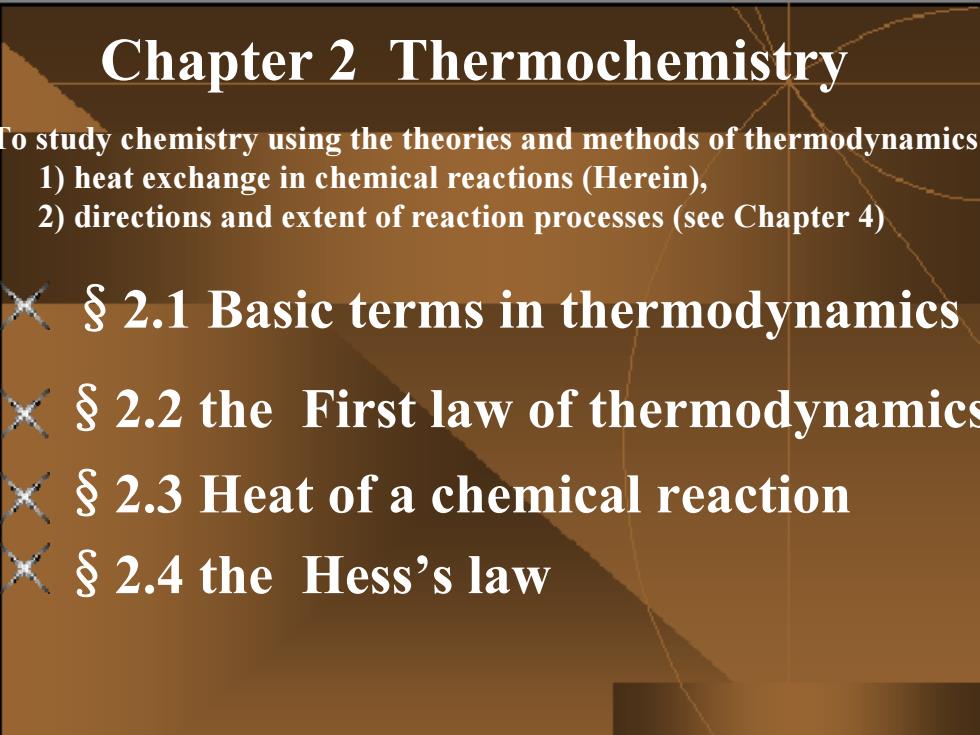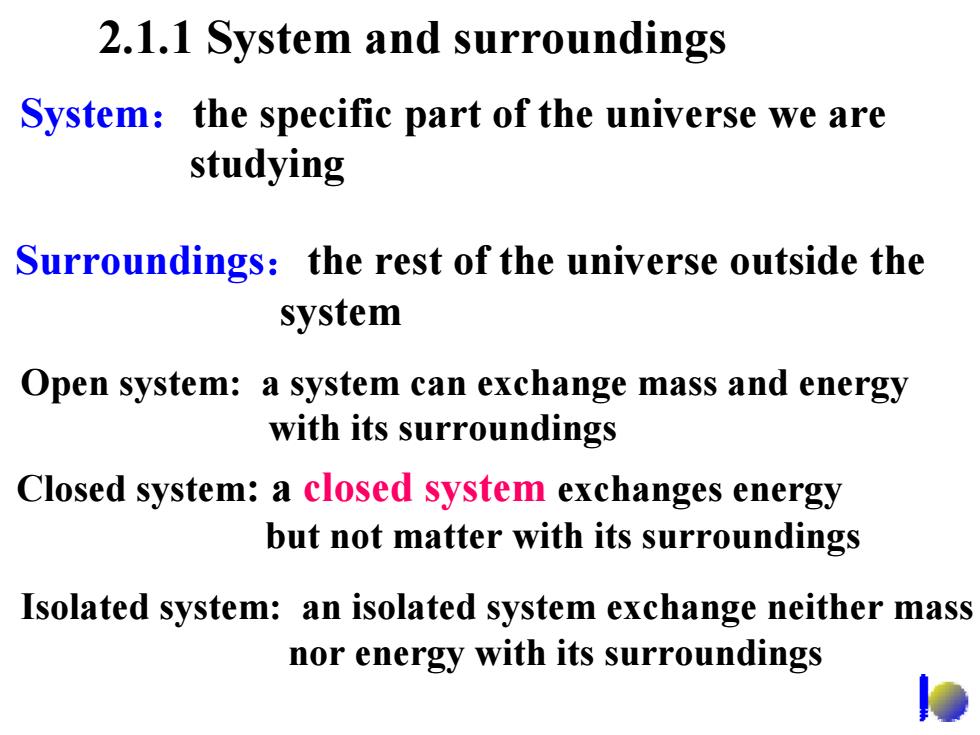
Chapter 2 Thermochemistry o study chemistry using the theories and methods of thermodynamics 1)heat exchange in chemical reactions (Herein), 2)directions and extent of reaction processes(see Chapter 4) X 2.1 Basic terms in thermodynamics x 2.2 the First law of thermodynamics x'2.3 Heat of a chemical reaction x§2.4 the Hess'slaw
Chapter 2 Thermochemistry §2.1 Basic terms in thermodynamics §2.3 Heat of a chemical reaction To study chemistry using the theories and methods of thermodynamics 1) heat exchange in chemical reactions (Herein), 2) directions and extent of reaction processes (see Chapter 4) §2.2 the First law of thermodynamic s §2.4 the Hess’s law

2.1 Basic terms in thermodynamics -2.1.1 System and surroundings 2.1.2 State and state functions 2.1.3 Process and path =2.1.4 Phase 2.1.5 Stoichiometric equation and extent of reaction
§2.1 Basic terms in thermodynamics 2.1.1 System and surroundings 2.1.5 Stoichiometric equation and extent of reaction 2.1.4 Phase 2.1.3 Process and path 2.1.2 State and state functions

2.1.1 System and surroundings System:the specific part of the universe we are studying Surroundings:the rest of the universe outside the system Open system:a system can exchange mass and energy with its surroundings Closed system:a closed system exchanges energy but not matter with its surroundings Isolated system:an isolated system exchange neither mass nor energy with its surroundings
2.1.1 System and surroundings System :the specific part of the universe we are studying Surroundings :the rest of the universe outside the system Open system: a system can exchange mass and energy with its surroundings Closed system: a closed system exchanges energy but not matter with its surroundings Isolated system: an isolated system exchange neither mass nor energy with its surroundings

Three systems represented by water in a flask (a) (b) (c) lo
Three systems represented by water in a flask (a) (b) (c)

2.1.2 State and state function State:the comprehensive condition of a system. State function:physical quantities depicting the property of a system.(e.g.,p,V,T;M...) The characteristics of a state function: (1)the value of a state function is unique when the state of a system is specified
2.1.2 State and state function State:the comprehensive condition of a system. State function:physical quantities depicting the property of a system. (e.g., p,V,T,M… ) The characteristics of a state function: (1) the value of a state function is unique when the state of a system is specified